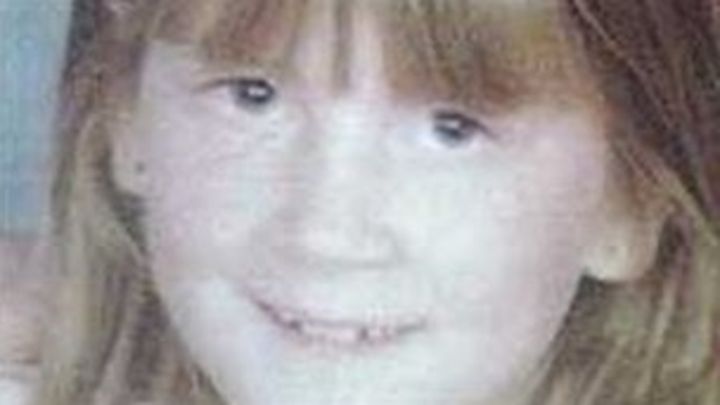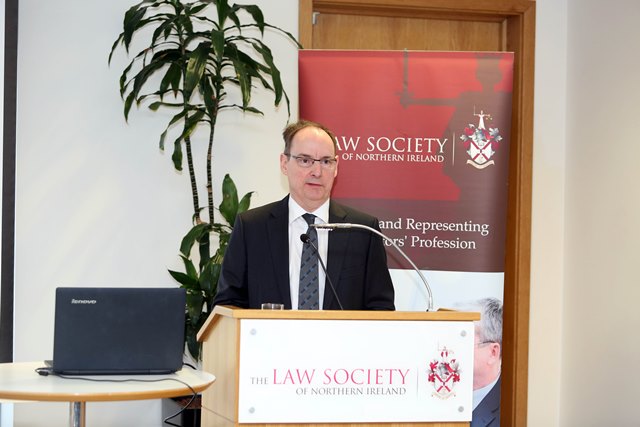
Raychel Ferguson died as a result of failings in hospital
According to the Belfast Telegraph, families of the children have been told that, following fresh legal advice, a new team of detectives must be put together to carry out the investigation.
It is the latest devastating delay for the grieving parents, coming as health officials refuse to take disciplinary action while regulators carry out their own investigation into doctors and nurses involved in the care of the children.
Following the publication of the findings of the Hyponatraemia Inquiry in January 2018, the PSNI put together a specialist taskforce to establish whether criminal activity had occurred.
However, after 14 months of trawling through thousands of pages of evidence from the inquiry, it has now emerged that this cannot be used to inform the police investigation.
Speaking at a recent Policing Board meeting, temporary Assistant Chief Constable Barbara Gray said a new team is being put together as the investigation requires “fresh eyes”.
It is feared it could be another three years before the investigation concludes.
Marie Ferguson, whose daughter Raychel (9) died after surgery to remove her appendix at Altnagelvin Hospital and was one of the children whose treatment was examined by the Hyponatraemia Inquiry, has hit out at the delay.
“I really don’t know what to say – it just seems typical,” she said.
“I’m just fed up to be honest, it’s got to the point where I feel like nothing is going to come of the Hyponatraemia Inquiry report.
“All these working groups are set up, but the people who were said to be at fault by the inquiry are continuing on while we lost our child.”
A PSNI spokeswoman said: “Subsequent to the findings of the inquiry into hyponatraemia-related deaths and associated issues, a dedicated team of detectives was set up within PSNI’s Serious Crime Branch in April 2018 to examine the findings and identify any areas of potential criminality and associated responsibility.
“At that time, PSNI were aware that the then Director of Public Prosecutions (DPP) had given an undertaking to the inquiry that any witness who gave evidence would not have this evidence used against them in a future criminal case.
“Police sought advice and set up the investigation in such a way that was considered not to breach the undertaking.
“During the course of the investigation, new information came to light about the way experts were instructed by the public inquiry that caused the senior investigating officer to question whether the specific undertaking in this case may have been engaged.
“Further legal advice was sought in light of the new information and, after lengthy consideration of the complex legal issues by senior counsel, it was decided that the investigation should not carry on in the way that it had been previously constituted.”
She said that it has been agreed that a new additional team will be put in place to carry forward a major part of the investigation and this team is currently being established.
She did not say how much money the PSNI has spent on the investigation to date.
However, she continued: “The existing investigation team will continue to review the material from the public inquiry to remove anything which may be in breach of the undertaking before it is passed to the new part of the investigation team.
“At all stages the police have acted in such a way as to give the best possible chance for any future prosecution arising from this investigation to succeed, respecting the legal undertakings that have been given during the public inquiry.
“Throughout this process, the families of the deceased children have been kept fully informed and they will continue to be updated as further progress is made.”

Inquiry chair Mr Justice O’Hara found that four out of the five child deaths were preventable
Delivering his findings at the beginning of 2018, chair of the inquiry, Mr Justice O’Hara, was scathing of a culture of secrecy in the medical profession.
He described doctors and health officials as more interested in protecting reputations than telling the truth about what happened to the children.
The Attorney General John Larkin QC ordered a fresh inquest into Claire’s death after Sir John said there had been a cover up in order to avoid scrutiny over the care given to Claire.
And last week, coroner Joe McCrisken found the youngster died from hyponatraemia, most likely as a result of the fluids she received in hospital.
Hyponatraemia is a condition which causes the brain to swell due to low levels of sodium in the blood stream – something that can happen when fluids are administered incorrectly.
Tags:




